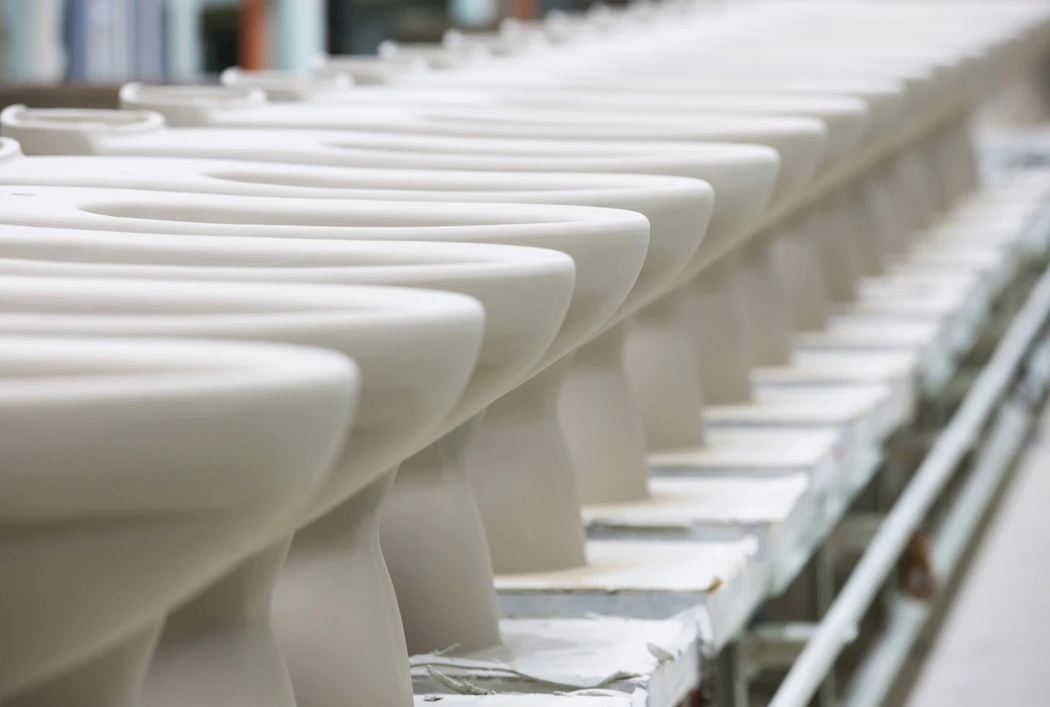Toilet Maker Plans to Recycle Plastic Waste Into Sidewalks
(Bloomberg) -- Lixil Corp., a maker of toilets sold under brand names including Grohe and American Standard, wants to tackle a different kind of waste: The millions of tons of plastic dumped into landfills or oceans.
The Japanese company has developed a new material that’s made from recycled plastic and wood chips and can be used as a substitute for concrete or wood in anything from sidewalks to furniture. Called Revia, it will be introduced at an event in Tokyo on Tuesday.
The market for recycled plastic is expected to more than double during the current decade, to $56.8 billion by 2029, according to Exactitude Consultancy, and products ranging from sneakers to shopping bags already use it. Still, only 9% of plastic is currently recycled globally, according to the Organization for Economic Cooperation and Development.
Lixil, which sells building materials alongside plumbing supplies, says Revia addresses one of the challenges that have made it impractical or overly expensive to recycle more. Usually, different kinds of plastic, from PVC used in pipes and window frames to PET in water bottles, need to be sorted and segregated before they can be transformed into new products. Especially with ocean plastic that breaks down into little bits, that can be difficult without testing.
To make Revia, all sorts of plastic can be lumped together. The company then shreds it and uses a proprietary binding agent to combine it with waste wood, producing a material that can be colored to resemble concrete, bricks or other building products.
Furniture, Paving
Lixil says Revia could be 3-D printed to make furniture, but expects the biggest implementation to be for sidewalks and urban plazas. In the unlikely event that the material were used for all of Japan’s paving needs, the company estimates that it could recycle about half of the plastic the country’s households throw away.
Reducing the use of plastic could be difficult in a country where individual grocery items like fruit and vegetables are often wrapped in the material. Japan is the world’s second-biggest producer of plastic waste per capita, after the US, according to a United Nations report.
Revia costs about twice as much as concrete, according to Lixil Chief Executive Officer Kinya Seto. But the price of the conventional building material has been rising amid a global shortage of a key ingredient, sand, and because of demand from China and industries such as fracking.
Revia can help “decrease consumption of concrete at the same time as decreasing plastic waste,” Seto said in an interview.
The company says in its most recent sustainability report that it aims to reach net zero CO2 emissions by 2050 “by offering eco-conscious products and services.” The new material can itself be recycled, Lixil says.
Lixil, which has revenue of about 1.4 trillion yen ($9.7 billion) hasn’t disclosed sales estimates for Revia. It plans to start selling the material next year and says it could ramp up output to make enough to pave 130,000 square meters with 30 millimeter-thick blocks when it starts commercial production at a site in western Japan the following year.
Exports are planned, though Seto acknowledged that it could take time to persuade mayors around the world to pave their sidewalks with Revia.
“This requires an ecosystem,” he said. “We can’t go to the supermarket to sell it.”
More stories like this are available on bloomberg.com
©2022 Bloomberg L.P.





